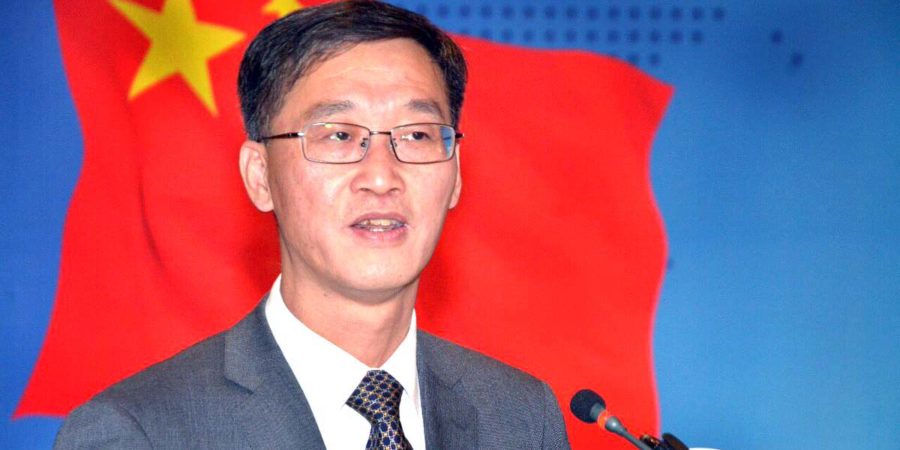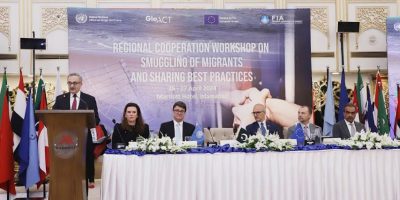Why did Beijing pull support for Pakistan at Financial Action Task Force? Chinese ambassador reveals the real reason

LAHORE, MAR 17 (DNA) – Last month, Pakistan narrowly escaped a US-led bid to put the country on a terror-financing watchlist, maintained by the Financial Action Task Force (FATF).
China, Turkey, and Saudi Arabia, which during the initial phase of the meeting resisted US pressure to place Pakistan on the list of states that lack effective regulations to combat terrorism financing, withdrew their support during the final phase, allowing the motion to go through successfully.
This invited a storm in the South Asian country, which is itself a victim of terrorism and has been battling militancy for years while being blamed by western and Indian lobbies for “providing safe havens to the terrorists’.
However, following the criticism, the top Chinese envoy in the country has clarified that Beijing’s silence at FATF session doesn’t point to a ‘united front’ against Pakistan.
Speaking at a local hotel in Lahore on Saturday, Ambassador Yao Jing revealed countries gather at an international forum with their own interests; and China too has to serve its own interests which cannot be neglected. But, the envoy said, China has a plan to pull Pakistan out of its problems.
“It is a wrong perception that we [China] abandoned Pakistan,” he added.
To a question, he rejected the ‘baseless fact’ that China was shown some evidence against Pakistan just before the last session of FATF. In fact, Mr. Jing shared, it was such a moment that any statement from Beijing was not going to make any impact on the FATF decision.
In his keynote address, the ambassador also dismissed the impression that CPEC projects are being carried out on a slow pace. “So far, China has invested US$19 billion in the Economic Corridor, out of which $4b were provided as soft development loans on 2 percent interest rate. These loans, which Pakistan needs to repay in a period of 30 years, are structured similarly to World Bank’s and of other global financial institutions,” Mr Jing detailed.
Another investment of US$15 billion was made through different Chinese companies, he added.
The ambassador cited the example of a Chinese company, Huaneng Shandong Rui Group, which is working on Sahiwal Coal Power Plant, signed a contract with Pakistani government for an Independent Power Project (IPP) that will not only provide electricity to the country but will also help it repay the loan.
Speaking about the flagship project of CPEC, the Chinese envoy said a service of two commercial ships will make Gwadar Port self-sufficient.
He emphasised that China’s relations with Pakistan, starting from 1950, were not based on transient interests but have remained unconditional. The project was not only for the benefit of Pakistan and China as “ownership of CPEC finally belongs to the whole world, he said.
Jing also noted that China’s Belt and Road Initiative (BRI) is a huge regional agenda with mutual interests rooted in China’s and Pakistan’s common vision for a better future and prosperity of the region.
He calculated that if Pakistan’s economy keeps growing on a rate of at least 4 percent, then the loans from China would not become a burden on the country’s financial system.
According to the Chinese envoy, the CPEC is divided into four categories:
- Development of Gwadar city and its port for commercial purposes
- Energy projects
- Infrastructure: roads and highways
- Special Economic Zones: 20 such zones will be established from Kashgar to Gwadar
These projects are aimed to provide infrastructure to Pakistan’s industrial and manufacturing sectors so that the country competes with the world, the ambassador said, adding that these will boost Pakistan’s economic growth to a next level. However, he added, it is necessary that these projects are completed in stipulated time. Mr. Jing disclosed that all the 43 projects under the China Pakistan Ecnomic Corridor will complete by 2030.
To another question, the top Chinese diplomat said the upcoming general elections will not, at all, affect the CPEC as all the political parties are on the same page on this mega-corridor.
The ambassador was of the view that their new challenge is to counter anti-CPEC propaganda and acknowledgement of China-Pakistan successes in recent past.
The event was also attended by leading journalists, notable defense analysts, as well as people from the academia.
Related News

UNODC, Pakistan join hands to combat smuggling of migrants
ISLAMABAD, APR 26 /DNA/ – The Federal Investigation Agency (FIA) and the Ministry of ForeignRead More

Complete independence impossible without economic stability: COAS
RAWALPINDI, APR 26: Chief of Army Staff (COAS) General Asim Munir on Friday said thatRead More


Comments are Closed